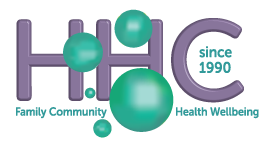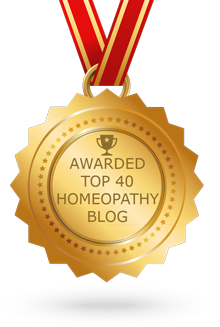[byline_author]
First of all, it is best to start by saying Homeopathy is a great example of wholistic (or holistic) medicine. Wholistic medicine is any system of health care which encourages a cooperative relationship between the patient, the practitioner and the family – taking into account the whole person, including physical, nutritional, environmental, emotional, social, spiritual and lifestyle values. Wholistic medicine focuses on education and responsibility for personal efforts to achieve balance and well being.
Therefore Homeopathy has earned it’s reputation as a wholistic system of medicine. Through careful case-taking and exact observation of individual symptoms and idiosyncrasies, the homeopath takes into account the ‘whole’ person.
What Is Homeopathy?
Homeopathy works on emotional problems such as anxiety, depression, fears, shyness and obsessive behaviour while also working on physical conditions. Homeopathic medicines encourage the body’s own healing abilities to bring about long lasting relief from symptoms. Simply put, homeopathy heals by stimulating the immune system to react against disease, restoring balance mentally and physically.
Dietary advice, some nutritional supplements and psycho-social measures may also be included in the homeopathic approach alongside the carefully chosen homeopathic medicine.
What are psycho-social measures?
Psycho-social measures include the sensitive provision of psychological, social and spiritual care and in this way Homeopaths play a unique role in supporting patients. This is not counselling, but by building dialogue with patients, homeopaths can begin to understand: how the person views themselves as an individual; what is important to them; how their reactions to ill health may hold back the process of recovery; and how their behaviour and relationships may affect their life.
How is Homeopathy different?
Homeopathy is an approach to healthcare which is fundamentally different from mainstream medicine, in theory and in practice. While both systems are based on exact observation, the methods of observation and interpretation differ. In mainstream medicine, treatment is based on the clinical diagnosis while the symptoms displayed by the individual patient play a lesser role. In homeopathy, on the other hand, the choice of medication depends on the totality of symptoms and problems of the individual patient.
In the homeopathic case taking, all symptoms are taken into account along with the clinical diagnosis. The clinical diagnosis is important for assessing the medical situation but less bearing on the choice of homeopathic medicine. For example, if a person has a clinical diagnosis of eczema the homeopath needs to know that it is eczema and not some other itchy type of rash, and then they will go on to ask careful questions about other problems the person also suffers from. In wholistic health care, when the person is treated with Homeopathy we expect the skin symptoms to lessen at the same time as sleeping and eating improve, and that other characteristics of the person like anxiety will be less troublesome.
How effective is Homeopathy?
A groundbreaking report was published in 2011 by the Swiss Federal Government called “Homeopathy in Healthcare – Effectiveness, Appropriateness, Safety, Costs.” This report was an HTA report. HTA is short for Health Technology Assessment, an established scientific procedure which, in contrast to the Cochrane Collaboration Standards, examines not only the efficacy of a particular intervention, but especially also its ‘real-world effectiveness’, its appropriateness, safety and economy. HTAs are therefore much wider in scope and more informative. They include material that is ‘normally’ not taken into consideration, such as observational studies, good case series and longitudinal cohort studies. The report was prompted by the high demand and widespread use and acceptance of homeopathy in Switzerland. At the same time, mainstream medicine has concern that homeopathy is ineffective, if not harmful. The question asked by the Swiss Government was: how could they satisfy society while meeting the requirements of scientific medicine?
In summary, the report found that:
- There is sufficient evidence for the effectiveness of homeopathy
- There is sufficient evidence for the safety of homeopathy
- Homeopathy is cost-effective when compared with conventional treatment
- Patient satisfaction is high
- Homeopathy “is a highly popular intervention and future research methods must respect the unique qualities of homeopathy.”
Is Homeopathy Safe?
Absolutely! Homeopathic medicines are used in sub-physiological doses. They do not have any chemicals or added colors in them. Usually they do not have any side effects and they cannot cause any structural damage in general. They are safe for infants, pregnant women and also animals but often have a profound healing action on the person.
What are the limitations of Homeopathy?
Treatment using homeopathy may be used for many conditions as long as the patient’s self-healing powers can still be adequately stimulated. The success rate varies depending on the complexity and severity of the individual case. Obvious limitations exist where there is a compelling indication for substitution therapy (such as insulin for juvenile diabetes) or surgical intervention (with bone fractures, for instance), or with severe terminal pathologies where self-healing is no longer possible.
How does Homeopathy work?
Homeopathy works by stimulating the body’s own defense mechanism to correct the process which has lead to the disease condition. According to our current understanding, the medicines act as an energy signal. The signal is picked up by nerves and relayed to the higher centers of the brain, which in turn stimulates our bodies healing powers to take specific corrective measures. Medicines tell the body What to do and then the actual work is done by the body itself. The medicine literally acts as stimulus to trigger your body to heal itself.
You would think that the questions: “What Is Homeopathy?” and “How does Homeopathy Work?” would be common questions asked in our clinic. But the people coming for an appointment in our clinic in Brookvale, on the Northern Beaches of Sydney rarely ask those questions. Instead they usually have been referred by a friend who told them “It worked for me” and that is really what they want to know.
What does the general public know about Homeopathy?
At the Australian Homeopathic Medicine Conference 2012, there was a paper presented by Cindy Lane titled: “Exploring the current healthcare choices made for young children in south east Melbourne.” The survey of parents of preschool children found that they thought many health issues were suitable to be treated by alternative medicine including: rashes, allergies, emotional issues, coughs, colds, sleep problems and nutritional deficiencies.
Is homeopathy more than placebo?
“The homeopathic history-taking encourages an intimacy between client and practitioner, with the client sharing difficult times and allowing the practitioner to act as a witness and carer. This intimacy is a very important part of enabling healing and should NOT be seen as placebo effect. Engagement has been shown, by those interested in evidence-based medicine, to be 45% of the process of healing … although I don’t think we needed evidence to know this.” This quote is from Dr. Catherine Berry at the Australian Homeopathic Medicine Conference 2012. She presented a paper titled “The art of healing.”
- Filling in the Gaps: A Homeopath’s Tour of a Dental Technician Lab - 08/11/2024
- Homeopathy surge worldwide - 11/08/2024
- Autism is helped by several different styles of homeopathy - 07/05/2024




Leave a Reply